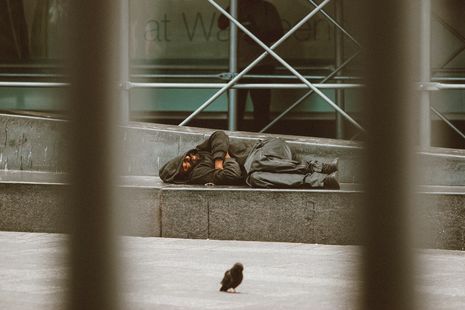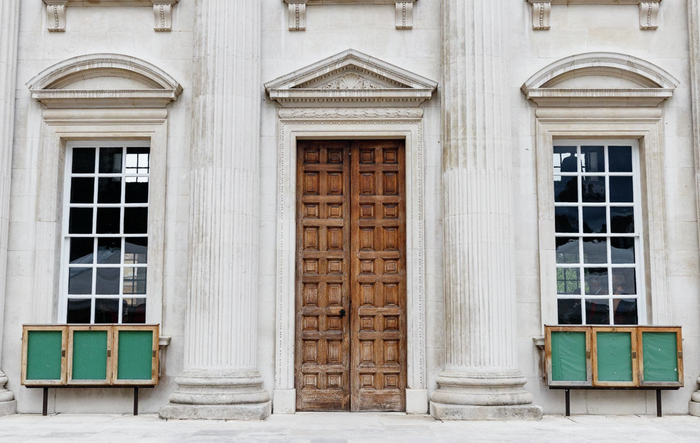‘Hostels need to be a springboard’: tackling the homelessness crisis in Cambridge
The head of homeless charity Shelter has said: ‘This is going to be one of the toughest winters yet’. So are charities and the council doing to tackle the crisis?

After a warm autumn, winter is finally setting in. When we go outside, we bring umbrellas, gloves, scarves. At their worst the outdoors are nothing other than utterly miserable. The cold weather sharpens our empathy for the homeless at this time of year. Seeing a fellow human being begging for change makes me feel heartbroken and guilty.
People end up homeless for a variety of reasons, from relationship breakdown to drug and alcohol addiction, or simply struggling to cope with the cost of living — though the council claims that they are yet to see an influx of claims made to the housing service due to the cost-of-living crisis.
Cambridge City council works hard to prevent homelessness. James McWilliams, the council’s housing manager, emphasises the preventative work of the council: “The people who are rough sleeping and the people that are in the hostels represent actually only a very, very small amount of, perhaps one in ten of, the people that approach the Cambridge City Council as homeless or threatened with homelessness.”
For those that are homeless, relief includes hostel accommodation, soup kitchens, student organisations, the council, and individual volunteers.
In Cambridge, aid is generally free of charge to those who need it. There are no homeless hostels in the city which charge for the night.
Barry Griffiths is a personable man with an infectious drive to help the homeless. He slept rough before getting support from Jimmy’s, one of Cambridge’s emergency hostels.
He moved through the Jimmy’s system and eventually became employed by them as a community outreach officer. He knows better than most that the care hostels like Jimmy’s provides to its 20 guests and their handful of pet dogs is vital.
But he also says: “hostels need to be a springboard” for longer term solutions. Staying in hostels for up to two years is not the most efficient way to reintegrate into society. A room in a hostel is not the same as a home.
To this end, the council recently spent £3.2 million to buy 14 one-bed flats for the exclusive use of rough sleepers, bringing their total count of similar accommodation for rough sleepers to 50.
So why are there still so many people sleeping rough in Cambridge? I'm told that homelessness is not exclusively about housing.
In fact, James says that some of the streetlife community aren’t homeless. The streetlife community is a group of people who chose to spend their time, and often their nights, on Cambridge’s streets.
Many of those on the street do have access to shelter. These people choose to have a street existence, although that choice is not exactly free. “It’s a choice which is made under a very constrained set of psychological and social circumstances”, says James, “it’s something that a lot of people find difficult to accept.
“Because most people, walking home on a wet night in November and seeing somebody in a doorway, we think if you had somewhere better to be, you wouldn’t be in a doorway.”
Continued street existence is maintained by mental health problems, addiction issues, and, heartbreakingly, friendship. Why sit in your small and bare council allocated modular home by yourself every evening when you could go out and with your friends?
James pointed out that a few, between eight and ten, of the streetlife community remained on the streets throughout the pandemic, when there was an unconditional offer of 3 hot meals a day, a private room, and an en-suite bathroom each, not to mention the threat of a potentially deadly virus outside.
Barry is a passionate advocate of what he calls the hello campaign – that instead of ignoring homeless people, we should acknowledge them and their humanity.
James was wary of blind compassion, however, aware that well-intentioned acts can sometimes do more harm than good. He is a campaigner for “real change, not loose change”, and fears that individuals who ask for money for accommodation are fuelling addiction issues, given Cambridge’s hostels are free.
In 2016 he co-founded the charity Street-Aid, who look to make lasting differences to the lives of the streetlife community. “We might pay for somebody’s first suit for a job or a bike for them to get to work”, he says.
Of course, the University is itself a charity, with a focus on education. The institution, which often sees the needy literally on the doorstep of its magnificent buildings, has the means to generate genuine social change.
James said: “[the University] might want to look at what it pays some of its ancillary staff and make sure that people are paid a wage that would allow them to be able to live in Cambridge”.
He also advocated for social housing projects on University-owned land, which could financially benefit the University, and apprenticeship or educational schemes for those reintegrating into society.
The idea that education could help the University solve such a pressing problem for the city it calls home seems rather appropriate.
Many have criticised the vast wealth inequality that exists between the University and the surrounding town. In 2018, it was revealed that the bottom 20% of the city take home just 2% of the income generated.
In late 2019 it was also reported that a homeless woman gave birth to twins outside of Trinity College. Trinity is Cambridge's richest college.
In light of this a Labour Councillor at the time commented that organisations and businesses that benefitted from being in Cambridge had a "moral responsibility" for inequality in the city.
Whilst both the causes and solutions to homelessness are complex, speaking with the organisations that are trying to tackle the crisis- more must be done to understand both.
 News / Cambridge students set up encampment calling for Israel divestment6 May 2024
News / Cambridge students set up encampment calling for Israel divestment6 May 2024 News / Cambridge postgrad re-elected as City councillor4 May 2024
News / Cambridge postgrad re-elected as City councillor4 May 2024 News / Proposed changes to Cambridge exam resits remain stricter than most7 May 2024
News / Proposed changes to Cambridge exam resits remain stricter than most7 May 2024 News / Some supervisors’ effective pay rate £3 below living wage, new report finds5 May 2024
News / Some supervisors’ effective pay rate £3 below living wage, new report finds5 May 2024 Fashion / Class and closeted identities: how do fits fit into our cultures?6 May 2024
Fashion / Class and closeted identities: how do fits fit into our cultures?6 May 2024






